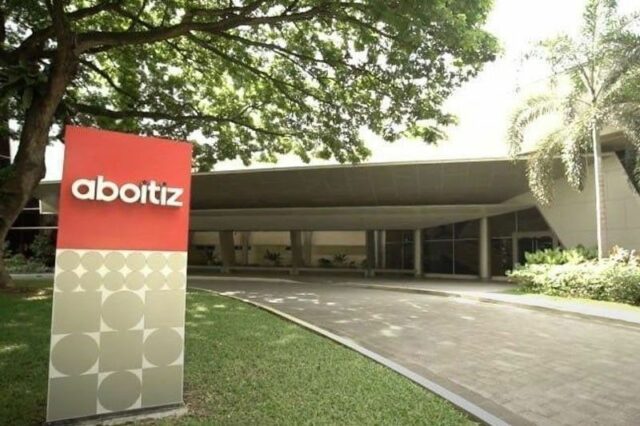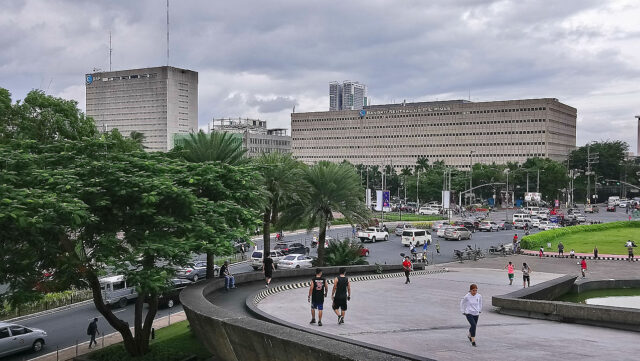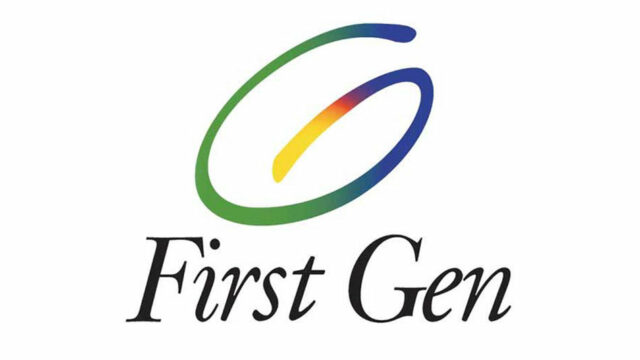Under a Piaya Moon the big winner of CinePanalo
THE INAUGURAL Puregold CinePanalo Film Festival crowned Under a Piaya Moon as the best film among its feature-length entries. Kurt Soberano’s debut feature, about a young man in 1980s Bacolod City aspiring to win a local pastry competition, bagged six awards in total, including Best Actor for Jeff Moses and Best Supporting Actor for Joel Torre. Close behind was the dramedy Pushcart Tales, which left with four awards including Best Director for Sigrid Andrea Bernardo. Ronjay-C Mendiola’s Last Shift was the best film winner in the student short film category, winning five awards in total. Audience choice awardees were A Lab Story for full-length and Saan Ako Pinaglihi? for shorts. The festival films are having an extended run of screenings at the Gateway 2 Cinemas in Araneta City, Quezon City until March 26.
Earth Hour events coming up in Metro Manila
THE ANNUAL switch-off slated for March 23 will have multiple activities lined up this year. P-pop boy group SB19’s Pablo as WWF-Philippines’ Earth Hour Music Ambassador will be the main guest at Manila’s event in the Kartilya ng Katipunan. The yearly global switching off of lights will be observed from 8:30 to 9:30 p.m., local time. The Philippines will be joining over 190 countries and territories around the world that are taking part in the grassroots movement for nature. The program beside the Manila city hall building will also have Ched and Lirah Bermudez as performers. Meanwhile, in Araneta City, Cubao, Quezon City, many landmarks and structures will be dimming their lights at the same time. Prior to the switch-off at night, Ali Mall will be accepting secondhand items and blood donations to promote the gift of giving. For more details on Earth Hour events in these locations, visit Manila City and Araneta City’s social media pages.
Hard Rock Cafe branches mark Women’s Month
HARD Rock Cafe Manila and Hard Rock Cafe Makati will have special live band entertainment and exclusive food and drink offerings for the benefit of the Global Gift Foundation and Magee-Womens Research Institute this month. Through its charitable arm, Hard Rock Heals Foundation, the company is raising funds throughout the month through woman-led performances at many of its locations around the world. In the Philippines, the in-house band CIRCA will have a Miley Cyrus Flowers Tribute Night on March 22 at Hard Rock Cafe Makati. Exclusive food and drink offerings supporting the cause are Pink Lace Margarita, the Run the World gin-based cocktail, Spring Pasta, Halibut Sandwich, Mango Peach Salad, and Coconut Almond Sundae, until April only.
Coffee Fest on at BGC’s 5th Avenue
BONIFACIO Global City (BGC) will be holding the Art, Bikes and Coffee at BGC’s Coffee Fest on March 23-24. Hosted by events host and former radio DJ Cerah Hernandez, this year the festival is moving to 5th Avenue in order to house more merchants, pop-up shops, and workshops. The Coffee Fest includes a pop-up by Crimson River Tattoo, Wabi Sabi Studio’s mug pottery workshop, a Paint Pour Workshop by Paint It Fun, a photobooth from The Archives Booth, and nail art from Posh Nails. On March 24, San Ride Bukas will be having a panel themed Women Empowerment Through Cycling as they celebrate Women’s Month. There will also be community rides as San Ride Bukas holds their All Women’s Coffee Ride, and Wideye Coffee has its own Sunset Ride. Merchants for cycling equipment and gear will be showcasing their offers, such as R.O.X., adidas, Specialized Philippines, The Breakaway + Passe, Life Cycle, 2Wheel Nation Cycling, Papsy’s Bikes and Brews, and San Ride Bukas. The Coffee Fest will also have a Cupping Demo hosted by 1C Coffee; Ten-Four Coffee will be holding a Outdoor Brewing Competition; and Vinyl on Vinyl is collaborating with Wideye Coffee for an exclusive special drink. Check out the rest of the coffee merchants setting up shop at Coffee Fest: Single Origin, Tiger Sugar, Pocofino, Elephant Grounds, harlan + holden Coffee, Coffee Laboratory, Supersam, Malongo Atelier Barista, Paik’s Coffee and Bakery, Figaro, Muji, Ten-Four Coffee, Wideye Coffee, KombiBrew, 1C Coffee, Fireplace, De’ja Brew, Sweets & Grinds, Seattle’s Best Coffee, Kaulayaw, Twenty Four Bakeshop, Baristart, Cooper’s Coffee Haus, Baker J, Seven Coffee, Randy’s Donuts, Krispy Kreme, Jamba Juice, Kiji Bakehouse, Sspace Coffee, Auro Chocolate Cafe, Nespresso, and Arabica. Moment Coffee + Om Bakes will also be serving vegan desserts, while Decimal Coffee will have a free library open for all. Finally, there will be performers throughout the fest, including Tolo Marvelous, Norris King, Red-I, DMaps (Diego Mapa) on March 23 and an all-women set consisting of Poli Poli, Seoulstepps, and DJ Honey on March 24. For more information, be sure to follow BGC on Facebook and Instagram.
Award-winning Filipino films arrive on Netflix
STARTING March and stretching until June, seven Filipino films from the recent Metro Manila Film Festival will be joining the Netflix platform. Those who missed the theatrical run can start catching up with Rewind, the Dingdong Dantes and Marian Rivera-starrer and one of the highest-grossing Filipino films of all time, on March 25. It will be followed by the Eugene Domingo and Pokwang comedy Becky and Badette on April 4, historical epic Gomburza on April 9, offbeat horror film Kampon on April 18, family drama Family of Two on June 1, action fantasy Penduko on June 7, and the time-bending folkloric horror film Mallari on June 21.
UST Conservatory of Music brings back annual concert
AFTER an absence of five years, the University of Santo Tomas (UST) Conservatory of Music will be bringing back its annual concert, Sampung mga Daliri, on April 13 at the university’s Quadricentennial Pavillion. What was once a staple of the university’s activities was halted due to the pandemic and is finally making its comeback. The concert will feature the UST Symphony Orchestra, UST Woodwind Orchestra, UST Conservatory of Music Voice Faculty, UST Jazz Band, and other departments and groups in the conservatory. This year, they will serve up a “Pastiche Patisserie,” a medley of pieces ranging from Classical, Broadway, OPM, and more. Tickets range in price from P400 to P2,000, and the show starts at 6 p.m. on April 13. For ticket inquiries, message the UST Conservatory of Music on Facebook.
Ghostbusters: Frozen Empire in cinemas this April
THE LATEST addition to the funny and scary Ghostbusters franchise is coming to Philippine screens on April 10. Written and produced by Jason Reitman, son of the late Ivan Reitman who directed the first and second Ghostbusters, it is co-written and directed by Gil Kenan. The new film stars McKenna Grace, Paul Rudd, Carrie Coon, and Finn Wolfhard as the Spengler family, who return to the story’s iconic New York City firehouse to team up with the original Ghostbusters. When the discovery of an ancient artifact unleashes an evil force, the Ghostbusters new and old must join forces to save the world from a second Ice Age. Ghostbusters: Frozen Empire comes to cinemas on April 10.
Ena Mori releases new song
FILIPINO-JAPANESE pop artist Ena Mori has released her new single, “Heartache Generation,” via Offshore Music and Sony Music Entertainment. The track chronicles the singer-songwriter’s bouts with existential crisis as she approaches her birthday. “It’s about being afraid of getting older and feeling overwhelmed with life that changes so quickly,” Ms. Mori said in a statement. Co-produced by Tim Marquez, the track explores contemporary and vintage music elements and comes with a music video that Ms. Mori shot on Ray-Ban Meta smart glasses. “Heartache Generation” is out now on all streaming platforms.
ABS-CBN’s A Soldier’s Heart streaming in the Middle East
AN ARABIC-DUBBED Filipino drama is now being shown in the Middle East with ABS-CBN’s collaboration with Rabee Alhajabed Art Production & Distribution FZE. The Philippine hit action-drama series A Soldier’s Heart is available on three streaming platforms: Maraya, Shofha, and Weyyak, covering Egypt, Saudi Arabia, the United Arab Emirates, and other Arabic-speaking territories. The series follows Alex, an IT expert who joins the army and crosses paths with a Muslim family whose identity makes him reconsider where his future might lie. A staple of Philippine popular culture, the action-fantasy drama Darna, will soon be available with its own Arabic-dubbed version as well.
Christian Bautista classic reimagined
THE HIT song “The Way You Look at Me” by Christian Bautista has been reinterpreted by Indonesia’s rising pop star, Nyoman Paul. The new version was arranged by Indonesian composer Andi Rianto for the newcomer to take on. Nyoman Paul Fernando Aro (his full name) traces back to his roots in Bali, where he was born in 2001. He draws from his diverse Indonesian and Swedish heritage for his work. “The Way You Look at Me” is out now on all streaming platforms.
Drama series A Journey on Netflix this April
KAYE Abad, Paolo Contis, and Patrick Garcia will be going on a trip for the upcoming Netflix series A Journey. The show follows a woman (Abad) who refuses treatment for cancer and goes on a road trip across Tasmania with her husband (Contis) and best friend (Garcia) to check off items on her bucket list. It is directed by RC Delos Reyes. A Journey arrives on Netflix on April 12.






















